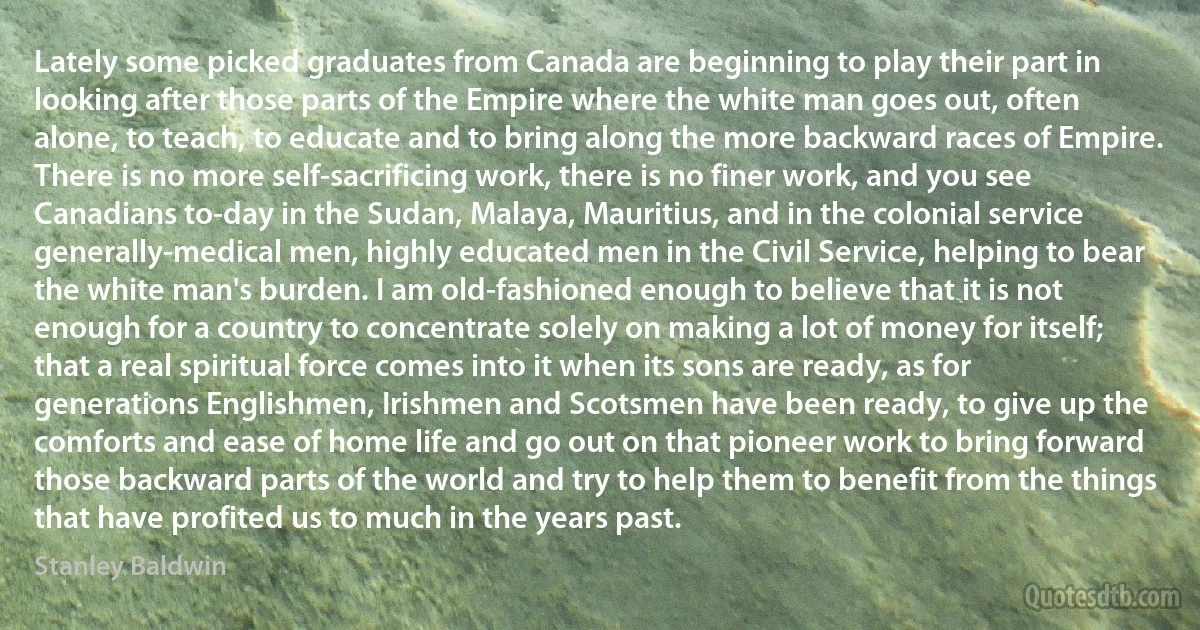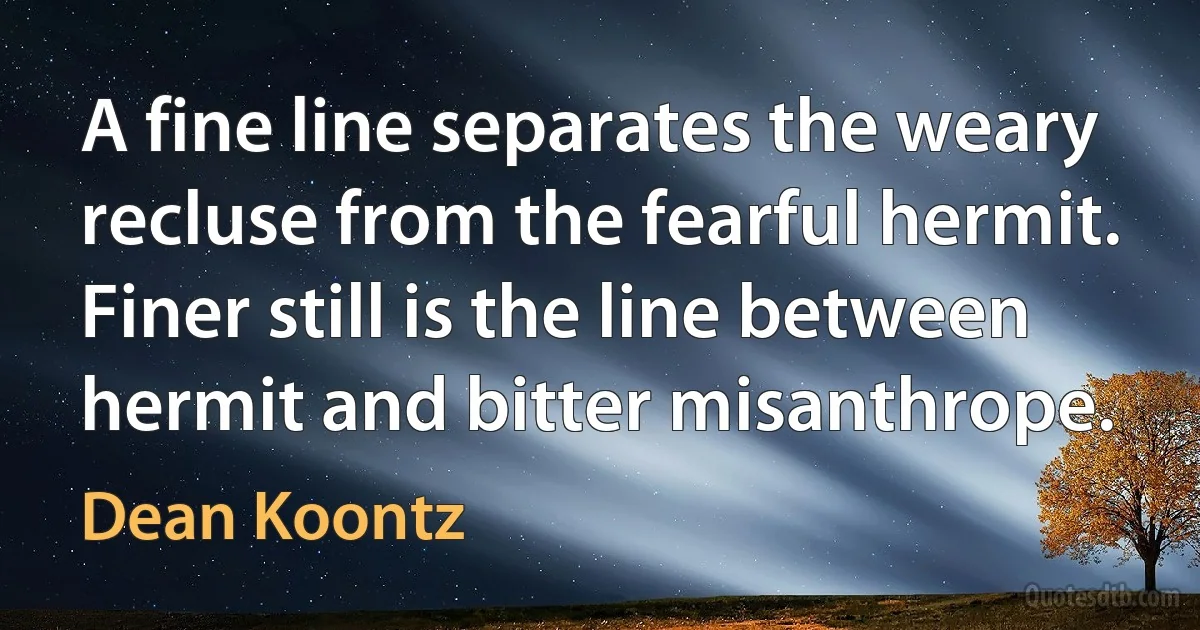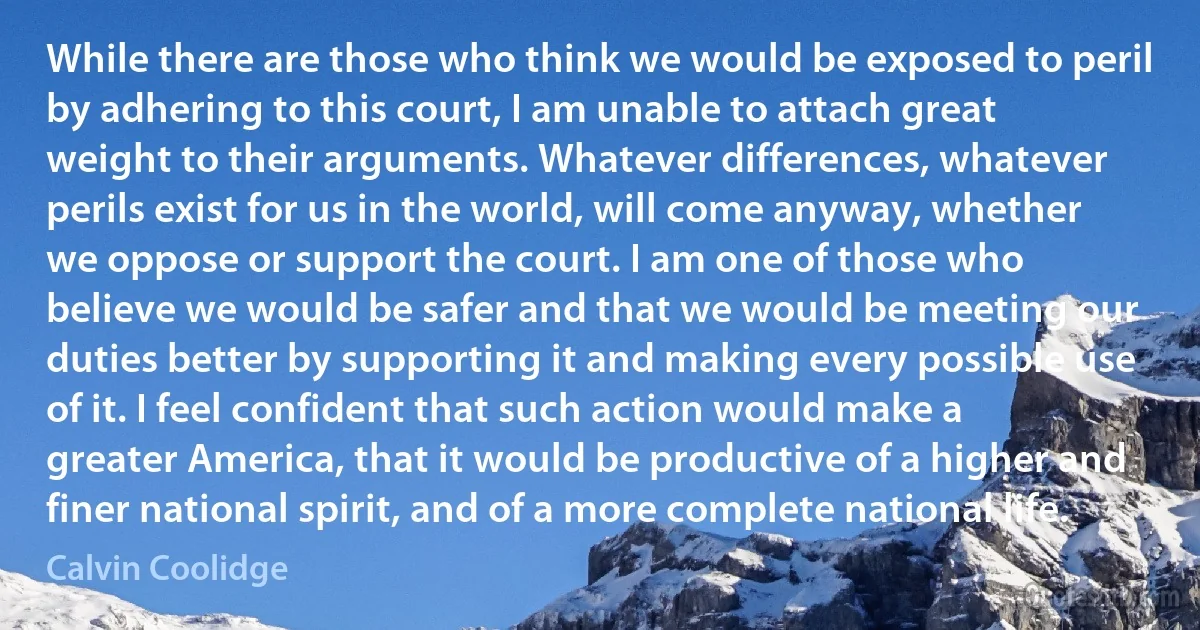Finer Quotes - page 3
Christopher Wren, the leading architect of London's reconstruction after the great fire of 1666, lies buried beneath the floor of his most famous building, St. Paul's cathedral. No elaborate sarcophagus adorns the site. Instead, we find only the famous epitaph written by his son and now inscribed into the floor: "si monumentum requiris, circumspice”-if you are searching for his monument, look around. A tad grandiose, perhaps, but I have never read a finer testimony to the central importance-one might even say sacredness - of actual places, rather than replicas, symbols, or other forms of vicarious resemblance.

Stephen Jay Gould
Brenda and Eddie were the popular steadies
And the king and the queen of the prom
Riding around with the car top down and the radio on
Nobody looked any finer
Or was more of a hit at the Parkway Diner
We never knew we could want more than that out of life
Surely Brenda and Eddie would always know how to survive.

Billy Joel
What a thing it is to lie there all day in the fine breeze, with the pine needles dropping on one, only to return to the hotel at night so hungry that the dinner, however homely, is a fete, and the menu finer reading than the best poetry in the world! Yet we are to leave all this for the glare and blaze of Nice and Monte Carlo; which is proof enough that one cannot become really acclimated to happiness. (10 September 1902) in the village of Cavalaire, France.

Willa Cather
As I was painting today, some thoughts came to me and I want to write them down for people I love. I know that I shall not live very long. But I wonder, is that sad? Is a celebration more beautiful because it lasts longer? And my life is a celebration, a short, intense celebration. My powers of perception are becoming finer.... with almost every breeze I take, I get a new sense and understanding of the linden tree, of ripened wheat, of hay... I suck everything up into me. And if only now love would blossom for me, before I depart; and if I can paint three good pictures, then I shall go gladly, with flowers in my hair..

Paula Modersohn-Becker
Confidence depends upon the people in whom you are to confide. You would not confide free representative institutions to the Hottentots, for instance. Nor, going higher up the scale, would you confide them to the Oriental nations whom you are governing in India-although finer specimens of human character you will hardly find than some of those who belong to these nations, but who are simply not suited to the particular kind of confidence of which I am speaking. Well, I doubt whether you could confide representative institutions to the Russians with any great security. You have done it to the Greeks, but I do not know whether the result has been absolutely what you wish. And when you come to narrow it down you will find that this which is called self-government, but which is really government by the majority, works admirably well when it is confided to people who are of Teutonic race, but that it does not work so well when people of other races are called upon to join in it.

Robert Gascoyne-Cecil, 3rd Marquess of Salisbury
Memorising notes as one memorises a speech in foreign language is bound to lead to memory lapses. YouTube is an invaluable tool; you can get to study your repertory with the best pianists of all times. Use it. If you are learning a piece, don't hesitate to put your headphones on and just play along with your favourite recording. No matter how many times you hear the playing you will not grasp all the finer points if not directly measuring your inner hearing of music with the an interpretation you like.

Valentina Lisitsa
You can't shut me up with your cynicism. I warn you- you must realise in time that you are not a mighty despot before whom everyone trembles. I do not tremble before you, I will fight you if you force me to it. I have not forgotten how despicably you treated our old friend, Abel [Yenukidze]. Never did you have a finer friend than Abel and you will never have a truer one. Yet, you caused Abel more harm and hardship than anyone else would do to an enemy. I have not forgiven you that two years ago you turned Abel out of the Kremlin although you had told him, and the people, that he was to become President of the Trans-Caucasian Republics.

Grigoriy Ordzhonikidze
Early in 1954 I was appointed Lecturer in Economics at the University of Queensland in Brisbane. Then, in 1956, I was awarded a Rockefeller Fellowship, enabling me and Anne to spend two years at Stanford University, where I got a Ph.D. in economics, whereas Anne got an M.A. in psychology. I had the good fortune of having Ken Arrow as advisor and as dissertation supervisor. I benefitted very much from discussing many finer points of economic theory with him. But I also benefitted substantially by following his advice to spend a sizable part of my Stanford time studying mathematics and statistics. These studies proved very useful in my later work in game theory.

John Harsanyi
To demonize all Soviet "leaders" at all levels, to portray them as unqualified villains and evildoers, unprincipled self-seeking scoundrels who were indifferent to the interests and needs of the people - that is a shallow and frivolous approach. Of course there were villains, quite a few of them. But most of those who came to power had the intention of serving the "toiling masses" from which they themselves had come. That the system rendered their aspirations useless, reduced their efforts to nothing, and ultimately snuffed out their finer impulses - that is a separate question.

Mikhail Gorbachev
It is not a little Surprising that Christianity, whose chief excellence consists of softening the human heart, in cherishing and improving its finer Feelings, should encourage a Practice so totally repugnant to the first Impression of Right and Wrong. What adds to the wonder is that this Abominable Practice has been introduced in the most enlightened Ages.

Patrick Henry
He was different. He had little taste for the finer side of the politics no interest in political philosophy; and he had hardly any values. In any scheme of things, his one target was personal interest. He was anti-Nehru, anti-Indira, anti-Desai, anti-Ramon carrying it, ignoble. He was also given to anger.

Charan Singh
Increasingly I suspected that this race, in spite of all its triumphs, was now living on the great ideas of its past, mouthing concepts that it no longer had the sensibility to understand, paying verbal homage to ideals which it could no longer sincerely will, and behaving within a system of institutions many of which could only be worked successfully by minds of a slightly finer temper.

Olaf Stapledon
The folksong collectors Bartok (Hungary) and Plicka (Czechoslovakia) notated the perceived interval deviations with a plus or minus sign (+,-). Older folksong collectors had notated all the intervals in the system of semitones, not observing the finer modifications of intervals. This first gained currency from the phongraph and tape recordings of folk music from various lands....From folksong I learned to perceive melodic intervals a little smaller or greater than those of the semitone-system....In my youth it often happened that the folk singers, who during the intermissions of dance festivals sang songs of "their kind," deviating from the semitone system, demanded that the first violinist of the Wisowitzer Kapelle play "their" melody just as they sang it. Once a tempermental singer threatened to strike the double-bass player with a beer mug if he didn't "play along" with the song, exactly as he sang it.

Alois Hába
There are two forms of knowledge, one genuine, one obscure. To the obscure belong all of the following: sight, hearing, smell, taste, feeling. The other form is the genuine, and is quite distinct from this. [And then distinguishing the genuine from the obscure, he continues:] Whenever the obscure [way of knowing] has reached the minimum sensibile of hearing, smell, taste, and touch, and when the investigation must be carried farther into that which is still finer, then arises the genuine way of knowing, which has a finer organ of thought.

Democritus



